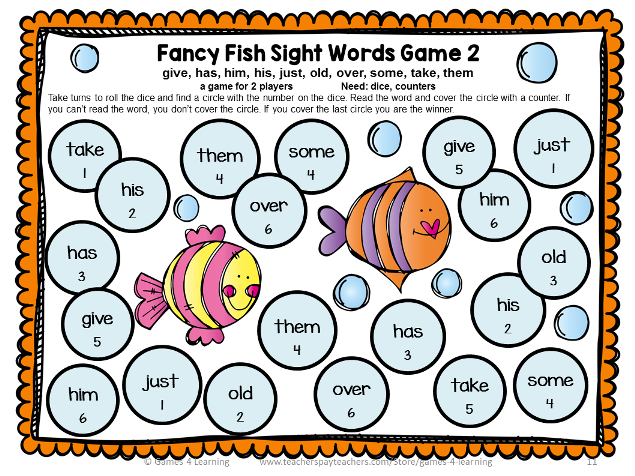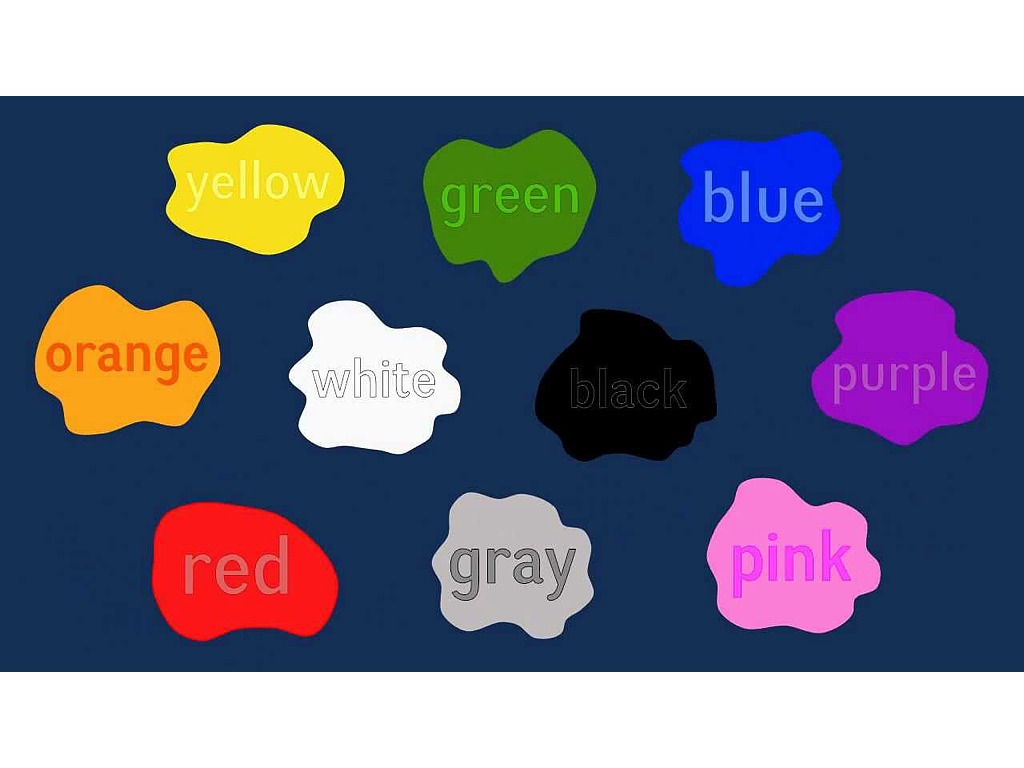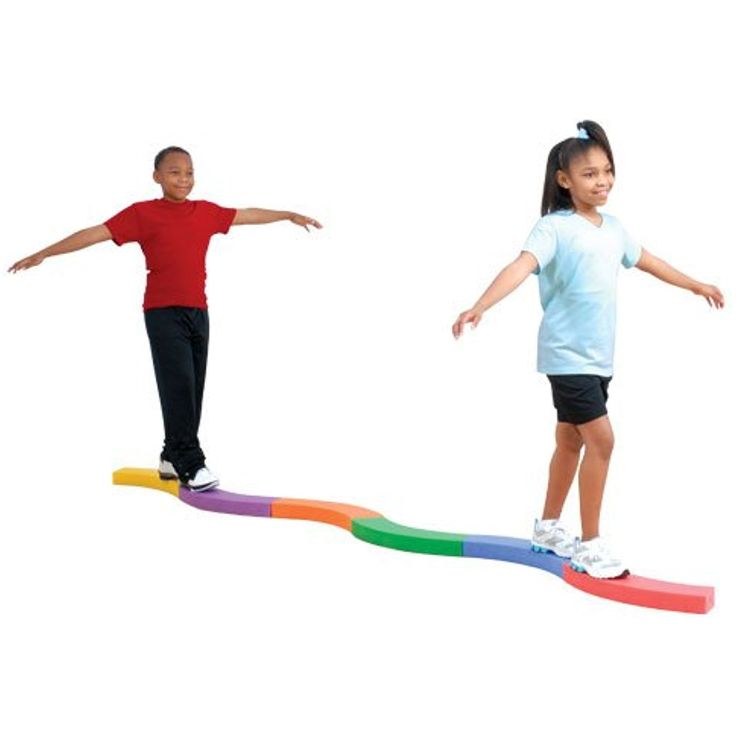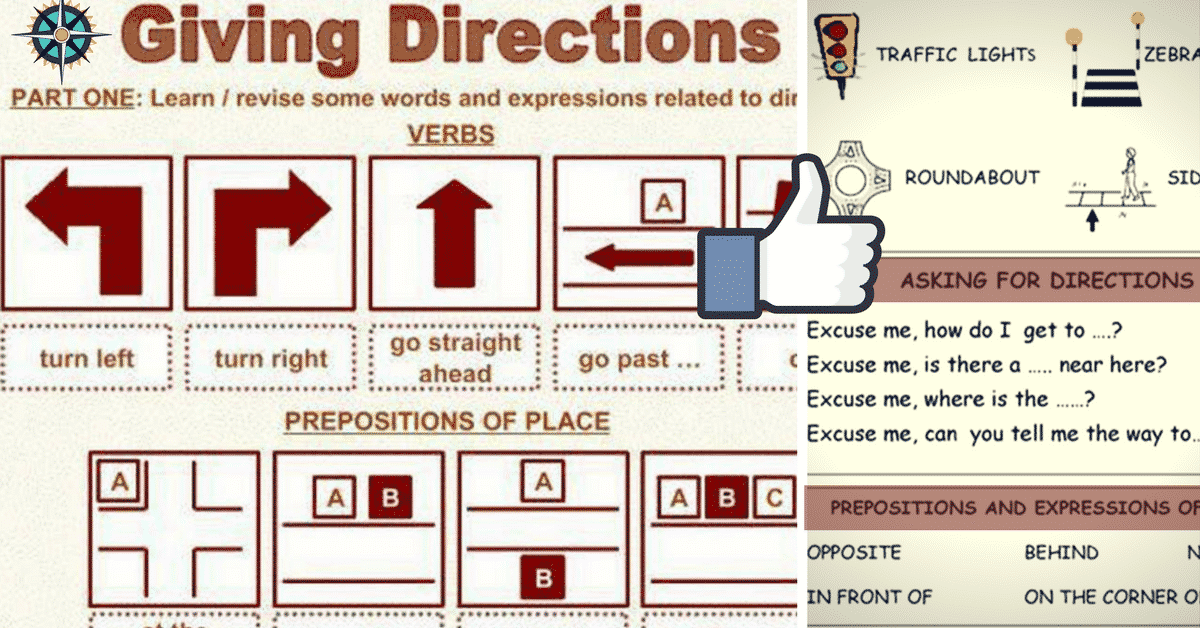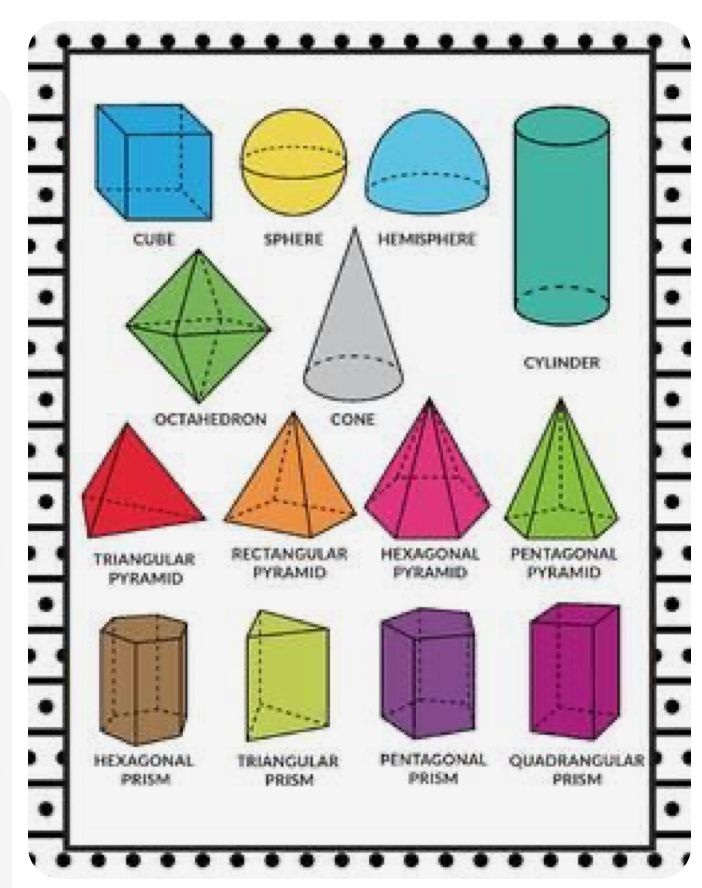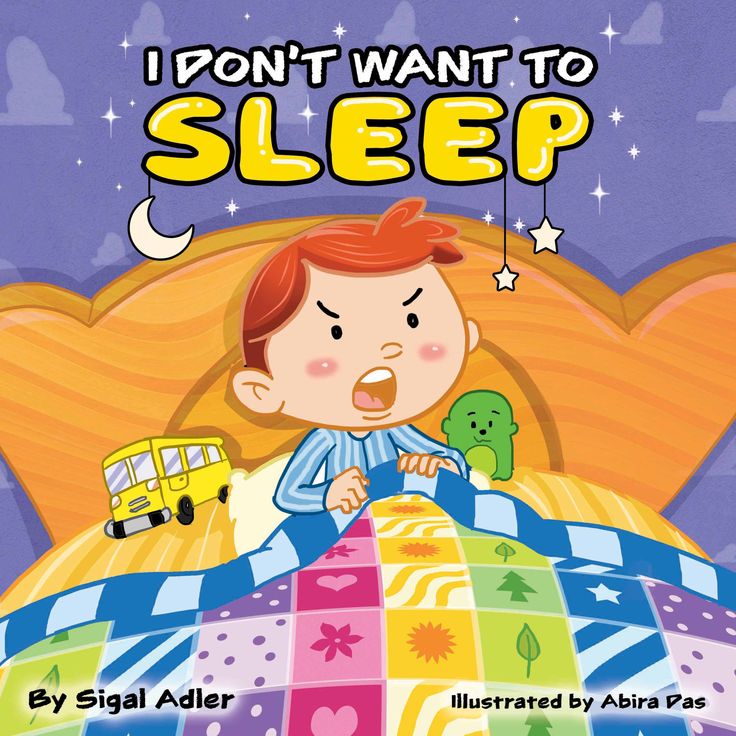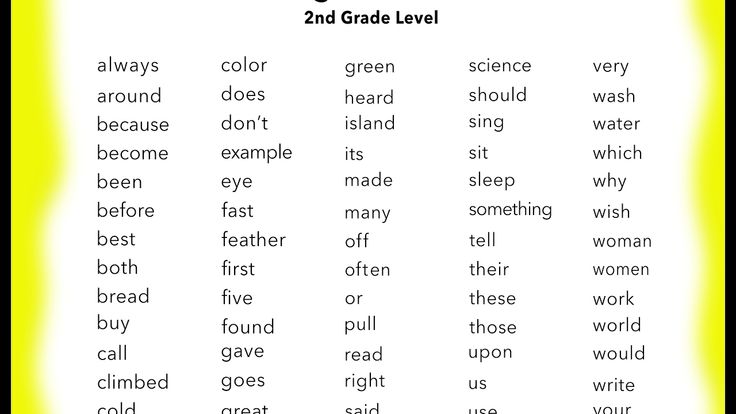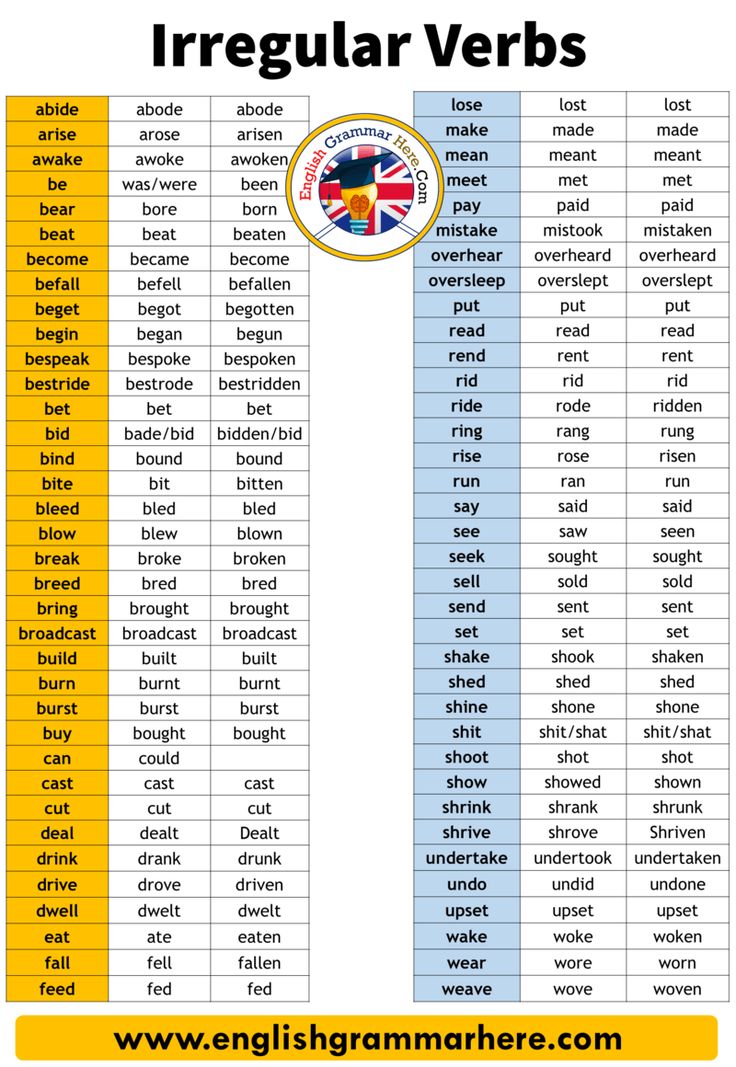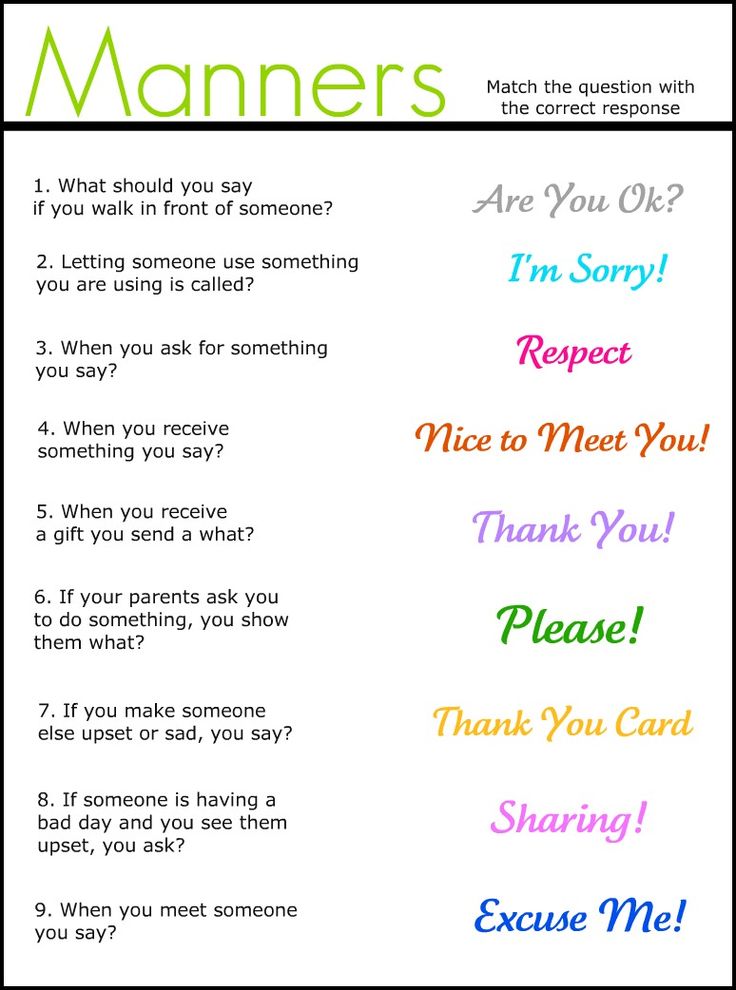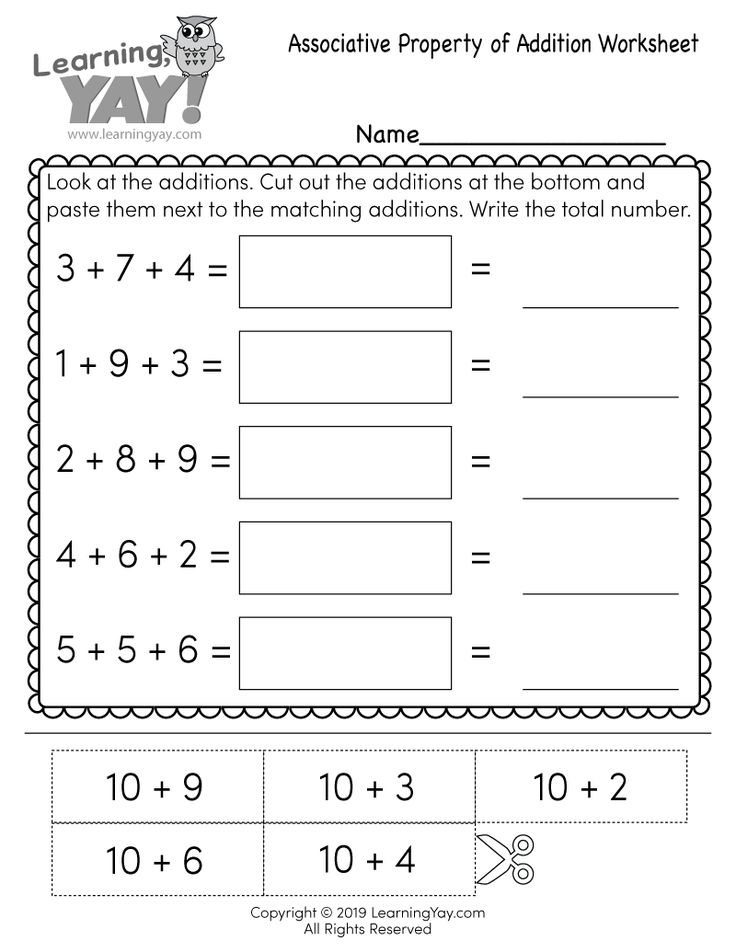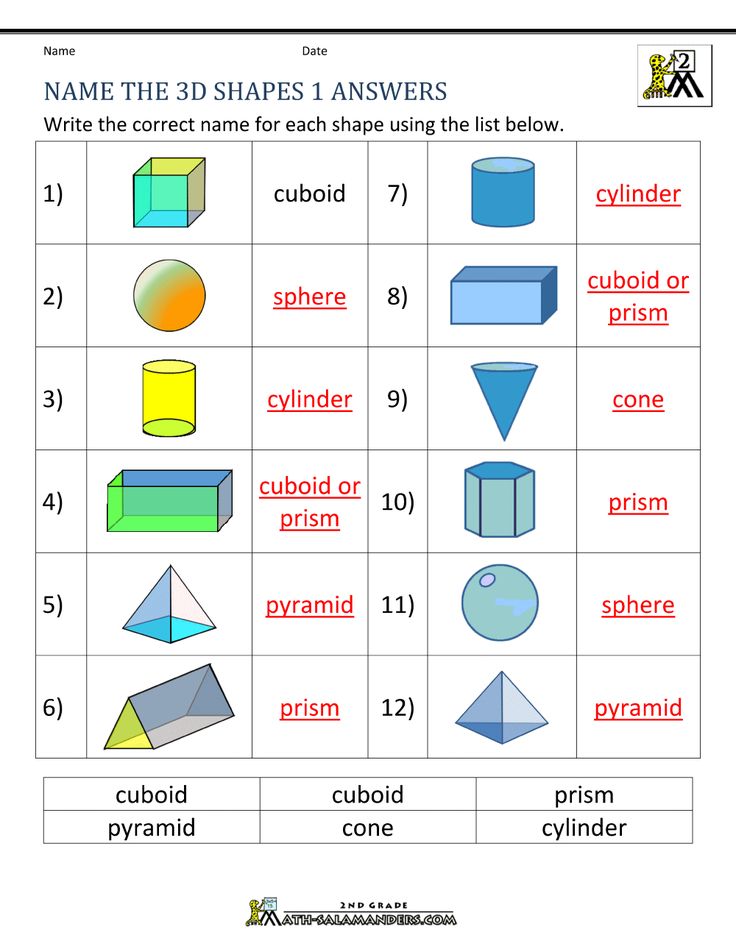Games to learn sight words
Sight Words Go Fish | Sight Words: Teach Your Child to Read
- Overview
- Materials
- Activity
- Confidence Builder
- Assessment
- Printable Go Fish Cards
- Questions and Answers
Sight Words Go Fish is a vocabulary-themed variation of the classic Go Fish card game, for 2-4 players. Introducing this game is easiest when the children already have experience playing the traditional Go Fish game, because they will already understand the game dynamics and can focus their attention on the reading aspect. This is of particular importance for younger children, who can get overwhelmed with having to learn a new game and new words at the same time.
The goal is to collect more pairs of matching cards than anyone else. Children must read the sight word on the card they wish to play and be able to read the words that are requested by other players. It is another fun way to give children extensive exposure to a variety of sight words.
Image: Sight Words Go Fish
↑ Top
For Sight Words Go Fish, you will make and use a set of cards with various word pairs. The number of pairs depends on how many words you select when creating the cards. You can also remove some pairs from your deck of cards to make it a more manageable size.
Use our Go Fish Card Generator to create a set of cards and print them out, preferably on heavy-duty cardstock paper. You will want to use a mix of newer words that the children have not yet mastered and familiar words that could use some review.
↑ Top
These instructions are for a game with 3-4 players. Sight Words Go Fish can also be played easily with just two players.
Video: How to Play Sight Words Go Fish
Deal 5 cards to each player (7 cards each if there are only 2 players), then place the remaining cards face down in the middle of the circle formed by the players.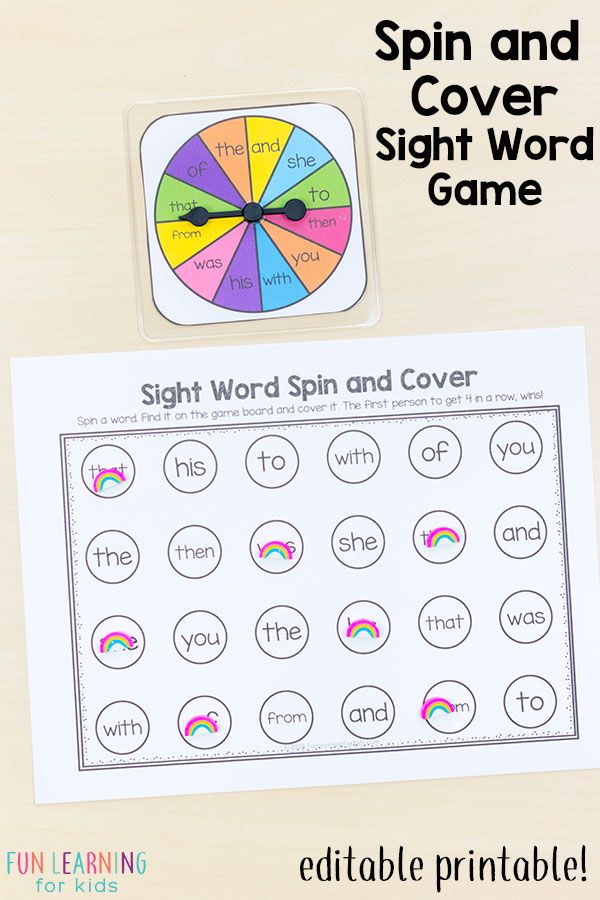 All the players look at their cards but do not reveal them to each other.
All the players look at their cards but do not reveal them to each other.
Player A takes the first turn. Player A selects one of her cards and reads the word on it out loud, moving her index finger from left to right underneath the letters as she reads. (An adult should demonstrate this reading technique at the start of the game to teach or remind children how best to read the word.)
Player A then selects another player and asks him, “Player C, do you have any cards with the word BEFORE?” If Player C has a card with that word, he must say “Yes, I have a card with the word BEFORE,” and hand it to Player A, who then gets another turn. If any player struggles with reading or pronouncing a word, take a moment to go through the sight words correction to reinforce the correct pronunciation.
If Player C does not have any of the requested card, he shouts, “Go Fish!” Player A must then draw a card from the stack. If the drawn card has the word she was looking for, she shows the card and gets to take another turn.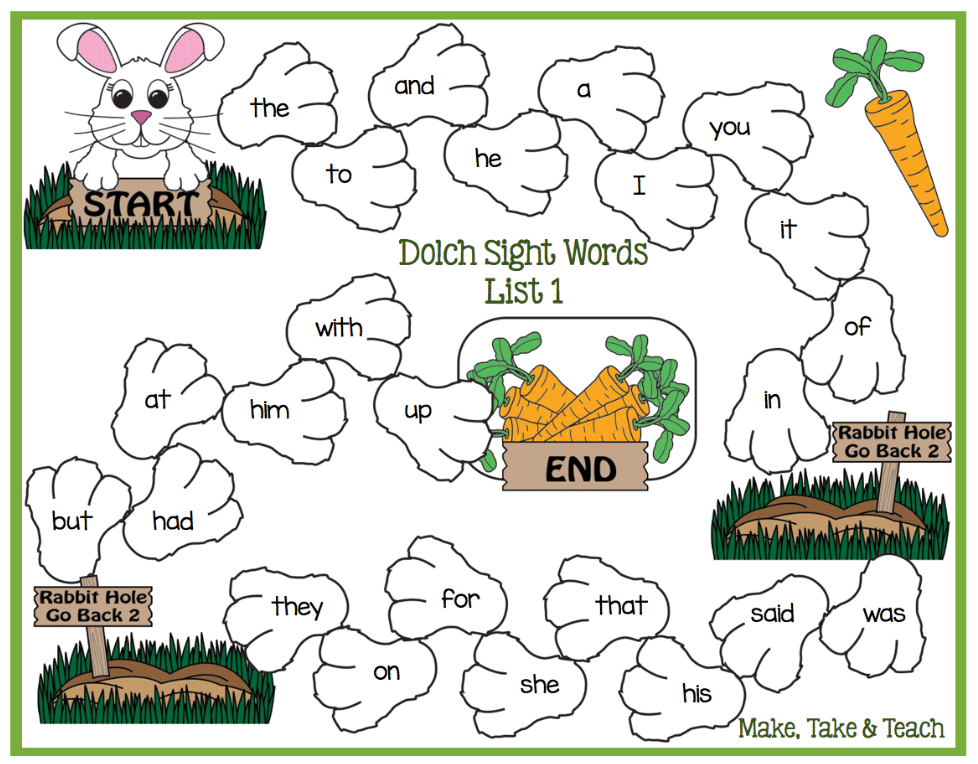 Otherwise, her turn ends, and the child who said “Go Fish” gets the next turn.
Otherwise, her turn ends, and the child who said “Go Fish” gets the next turn.
If a player collects both cards of a particular word pair, he puts them in a face-up stack in front of him. The game continues until someone has no cards left or the face-down stack runs out. The winner is the player with the most pairs of matching cards.
↑ Top
To make the game a little easier, especially for a younger child, simply use fewer pairs of cards.
↑ Top
Observe the game, whether it’s watching your own child in your 2-player game or observing a group of students in a 4-player game. Make note of which words the children have mastered, and which ones are still a bit of a struggle. Be on the lookout for individual children who are struggling with several of the words.
A child is considered to have mastered the sight words in this activity when she can consistently recognize and read all the word cards in her hand, with confidence and without any noticeable hesitation.
↑ Top
Create your own custom Go Fish Cards or use some of our pre-made templates below.
6.1 Blank Go Fish Card Templates
- Blank Go Fish Card Templates (Write in your own words)
6.2 Dolch Sight Words Go Fish Cards
- Pre-K Dolch Words (40 words)
- Kindergarten Dolch Words (52 words)
- 1st Grade Dolch Words (41 words)
- 2nd Grade Dolch Words (46 words)
- 3rd Grade Dolch Words(41 words)
- Noun Dolch Words (95 words)
6.3 Fry Sight Words Go Fish Cards
- 1st 100 Fry Words (100 words)
- 2nd 100 Fry Words (100 words)
- 3rd 100 Fry Words (100 words)
- 4th 100 Fry Words (100 words)
- 5th 100 Fry Words (100 words)
- 6th 100 Fry Words (100 words)
- 7th 100 Fry Words (100 words)
- 8th 100 Fry Words (100 words)
- 9th 100 Fry Words (100 words)
- 10th 100 Fry Words (100 words)
6.
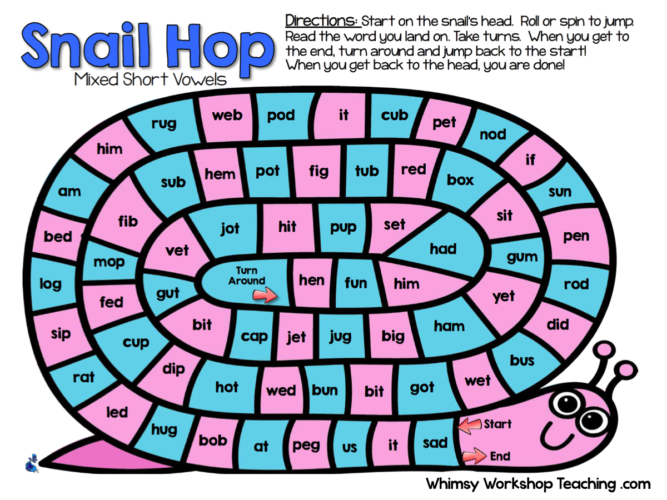 4 Top 150 Written Words Go Fish Cards
4 Top 150 Written Words Go Fish Cards- 1st 50 Words (50 words)
- 2nd 50 Words (50 words)
- 3rd 50 Words (50 words)
To download a template, right-click and select Save As.
These materials are provided under the Creative Commons Attribution 3.0 Unported License. Essentially, this means you can do whatever you want with the resources, provided you leave the attribution hallmark on the resources. You may use these materials in the classroom, at home, as part of a for-profit tutoring business, or for any other purpose. (Except starting forest fires. That’s bad.) You do not need to contact us for permission to use the materials. We want you to use them!
↑ Top
Leave a Reply
Sight Words Boom! | Sight Words: Teach Your Child to Read
- Overview
- Materials
- Activity
- Confidence Builder
- Variation
- Printable Boom! Cards
- Questions and Answers
Sight Words Boom! is a vocabulary-themed game for one or more players.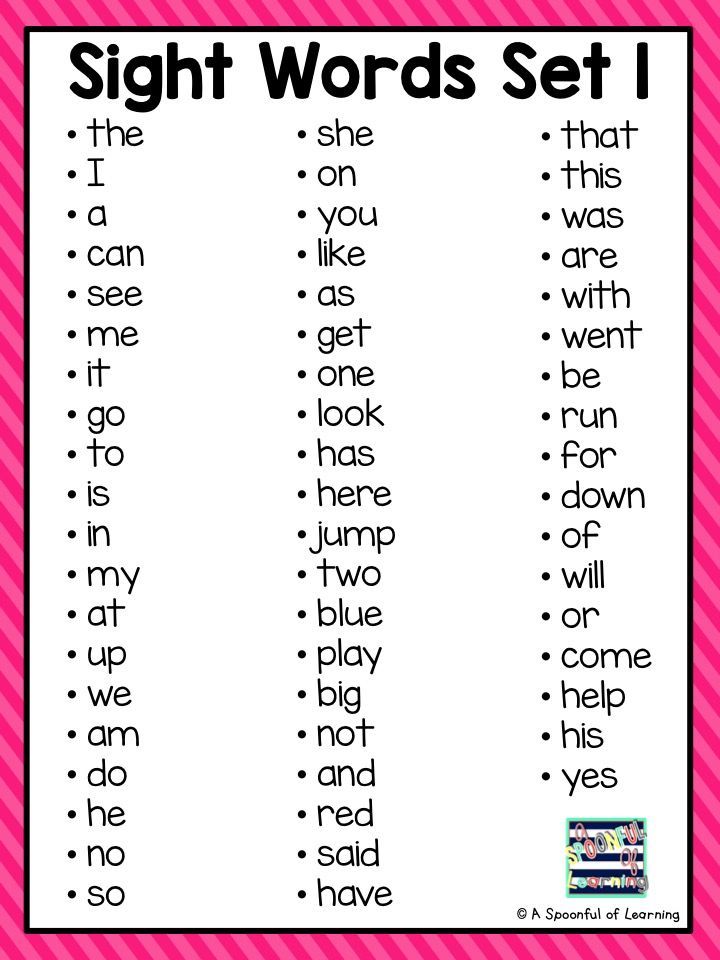 Children will collect cards by correctly reading the sight words printed on them. But watch out for the BOOM cards! Draw a BOOM card, and you lose all the cards you collected and have to start over.
Children will collect cards by correctly reading the sight words printed on them. But watch out for the BOOM cards! Draw a BOOM card, and you lose all the cards you collected and have to start over.
Image: Sight Words Boom!
↑ Top
- Sight Words Boom! cards
Create Boom! cards with our Boom! Card Creator and print the cards out on cardstock paper. Each sheet will have eight sight word cards and one BOOM card. Cut apart the cards along the dotted lines.
↑ Top
Shuffle the cards and put them in a face-down stack. Player A draws a card from the stack and reads the word on it out loud, moving her index finger from left to right underneath the letters as she reads. (An adult should demonstrate this reading technique at the start of the game to teach or remind children how best to read the word.)
If she reads the word correctly, she gets to keep the card.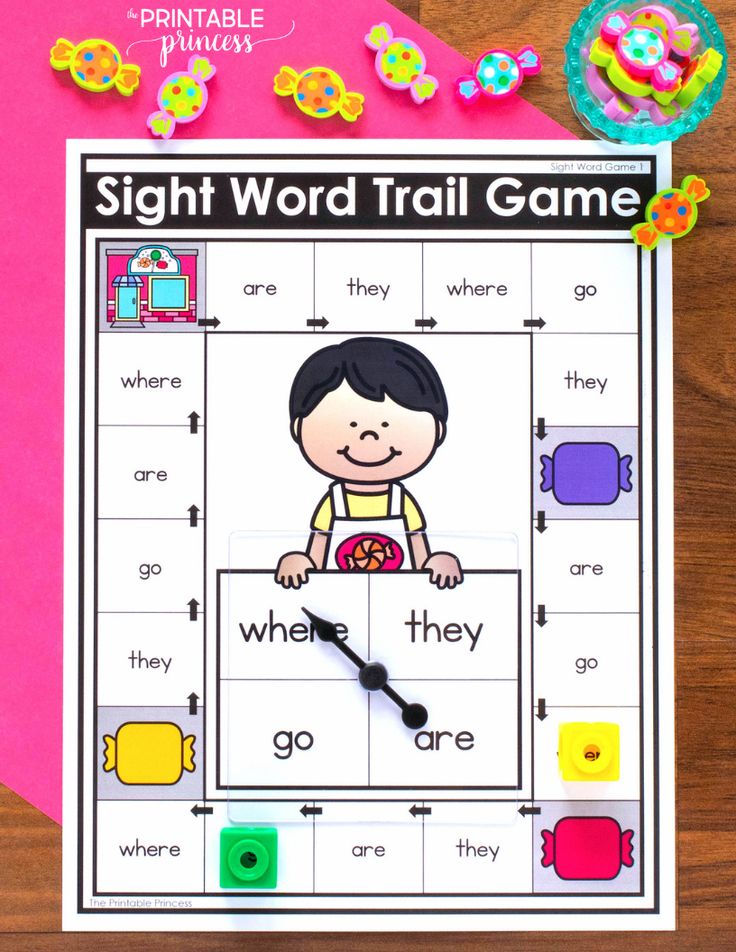 Then Player B takes a turn (if there are multiple players). If Player A does not read the word correctly, Player B gets a chance to read that word and collect a card.
Then Player B takes a turn (if there are multiple players). If Player A does not read the word correctly, Player B gets a chance to read that word and collect a card.
NOTE: If there is a word that no player can read correctly, the adult should set the card aside as a reminder to work on that word in the next day’s lesson.
The BOOM cards are what make this game fun and exciting! If a child draws a BOOM card, she loses all the cards she has collected. On her next turn she can start collecting new cards. The lost cards (including the BOOM card) should be shuffled and added to the bottom of the face-down stack.
Keep playing until all the cards in the face-down stack have been collected. The winner is the player with the most cards.
If there is only one player, she plays to see how many cards she can collect before losing them to a BOOM card. She can play repeatedly, trying to beat her previous record.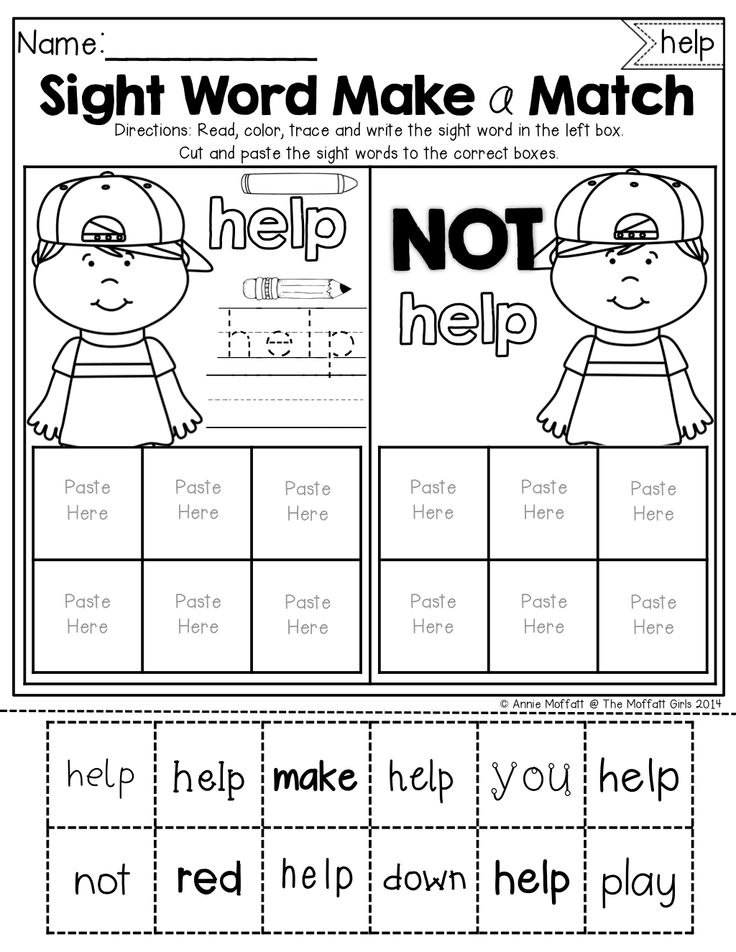
↑ Top
If the child is easily discouraged when she loses her cards, simply play with fewer BOOM cards.
↑ Top
Set a timer for anywhere from one to five minutes. Challenge the players to read as many words and collect as many cards as they can before the time runs out. But they still have to watch out for the BOOM cards!
↑ Top
Create your own custom Boom! cards or use some of our pre-made templates below.
6.1 Blank Boom! Card Templates
- Blank Boom! Card Templates (Write in your own words)
6.2 Dolch Sight Words Boom! Cards
- Pre-K Dolch Words (40 words)
- Kindergarten Dolch Words (52 words)
- 1st Grade Dolch Words (41 words)
- 2nd Grade Dolch Words (46 words)
- 3rd Grade Dolch Words (41 words)
- Noun Dolch Words (95 words)
6.
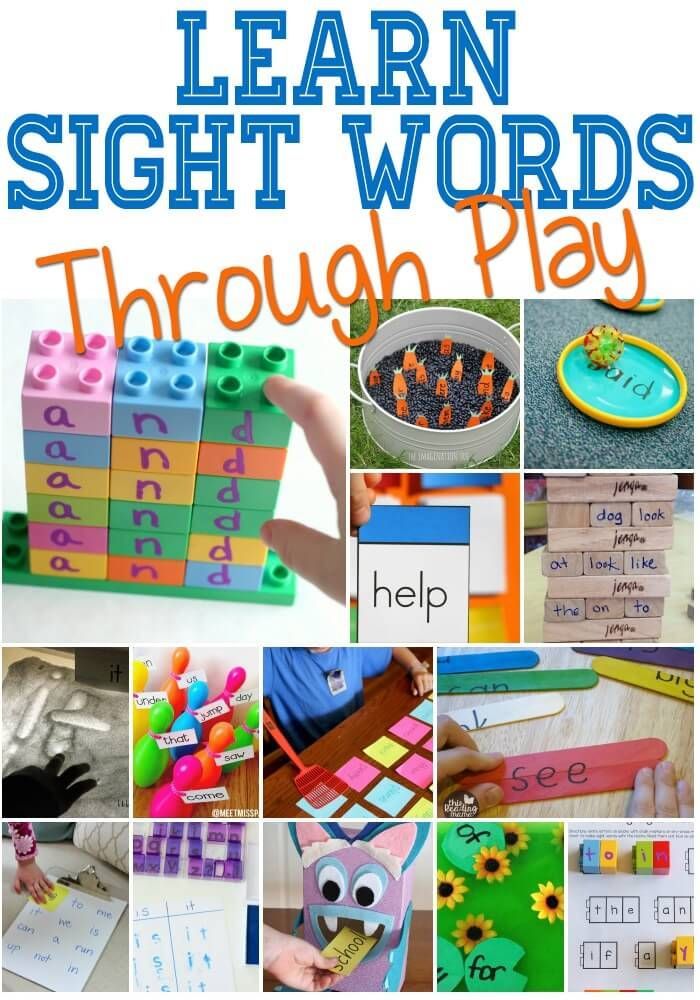 3 Fry Sight Words Boom! Cards
3 Fry Sight Words Boom! Cards- 1st 100 Fry Words (100 words)
- 2nd 100 Fry Words (100 words)
- 3rd 100 Fry Words (100 words)
- 4th 100 Fry Words (100 words)
- 5th 100 Fry Words (100 words)
- 6th 100 Fry Words (100 words)
- 7th 100 Fry Words (100 words)
- 8th 100 Fry Words (100 words)
- 9th 100 Fry Words (100 words)
- 10th 100 Fry Words (100 words)
6.4 Top 150 Written Words Boom! Cards
- 1st 50 Words (50 words)
- 2nd 50 Words (50 words)
- 3rd 50 Words (50 words)
To download a template, right-click and select Save As.
These materials are provided under the Creative Commons Attribution 3.0 Unported License. Essentially, this means you can do whatever you want with the resources, provided you leave the attribution hallmark on the resources. You may use these materials in the classroom, at home, as part of a for-profit tutoring business, or for any other purpose.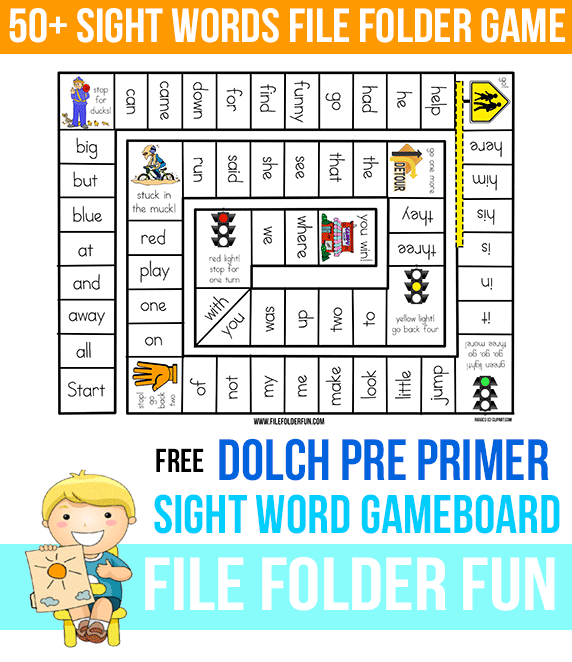 (Except starting forest fires. That’s bad.) You do not need to contact us for permission to use the materials. We want you to use them!
(Except starting forest fires. That’s bad.) You do not need to contact us for permission to use the materials. We want you to use them!
↑ Top
Leave a Reply
7 word games suitable for children of any age
When there is no energy left for active games that require careful preparation, word games come to the rescue. We've put together a selection of seven cool games that all you need to do is be in the company of more than two people and be in a good mood! You can also play them via video link.
1. "Guess the word!"
Number of players: from 2 people
Very simple and funny game. Headphones are put on one player, in which music plays loudly so that he does not hear anything. His task is to guess the word by the lips when another player says it. If several people are involved, then you can explain the word in turn or split into pairs. nine0003
2. “I will never…”
Number of players: from 2 people
Today this game has many variations.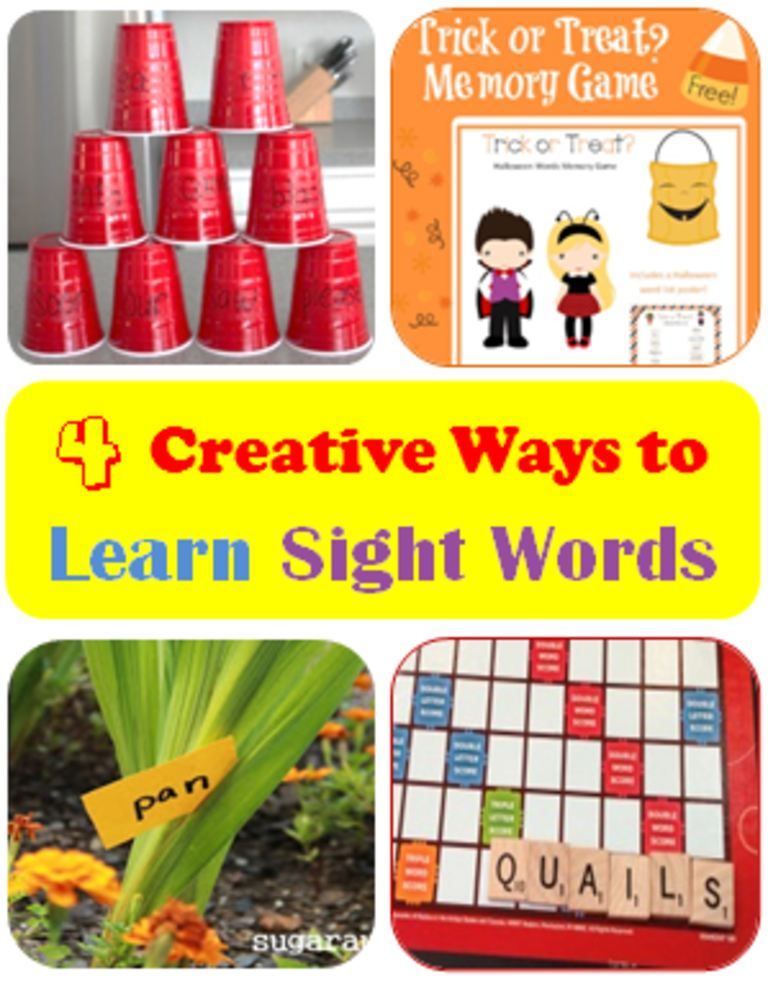 We offer the most common version. Participants take turns to name some action that they have never done. For example, player A says, "I've never been late for class." Everyone who was late for them bends one finger. The game continues until one of the participants has all their fingers bent. According to the main version of the game, the person who was the first to bend all the fingers lost, but lived the most eventful life! nine0003
We offer the most common version. Participants take turns to name some action that they have never done. For example, player A says, "I've never been late for class." Everyone who was late for them bends one finger. The game continues until one of the participants has all their fingers bent. According to the main version of the game, the person who was the first to bend all the fingers lost, but lived the most eventful life! nine0003
By the way, you can also play in English if you want a different level of difficulty.
3. "Thematic words"
Number of players: from 2 people
The rules of the game are extremely simple. You and other participants need to come up with a topic on which you will name the words. For example, "school". Then all participants in a circle should name nouns that relate to the main topic. If one of the participants thinks for more than five seconds or repeats an already spoken word, he is eliminated. The last one left wins.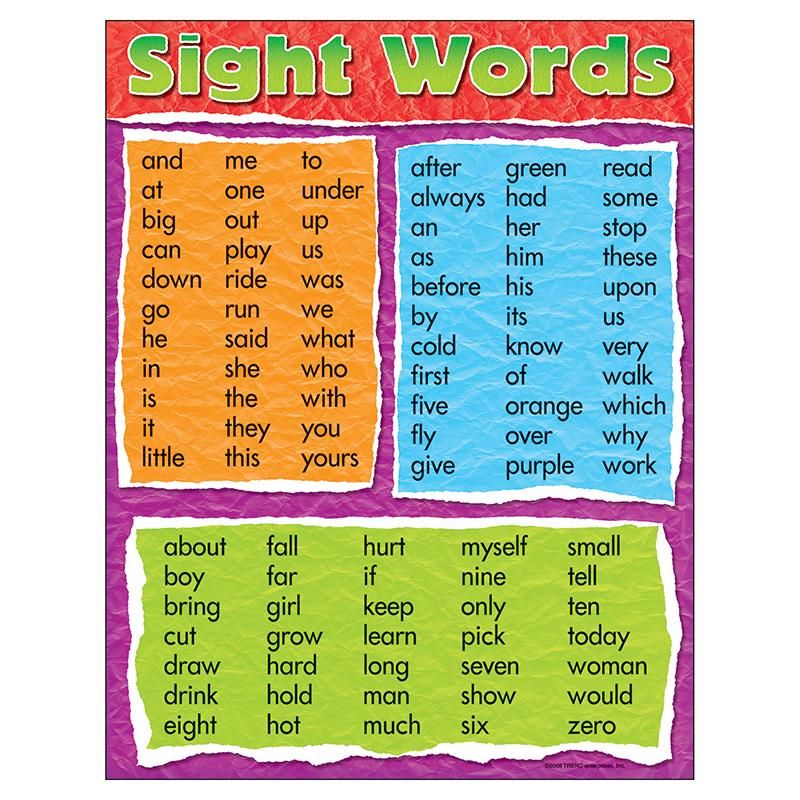 When the circle is over, you can start a new one on a different topic until one of the participants wins, for example, three times. nine0003
When the circle is over, you can start a new one on a different topic until one of the participants wins, for example, three times. nine0003
4. "P"
Number of players: from 3 people
First, all players need to agree on which words will be used throughout the game: only nouns, or names, verbs and phrases can be used. Then one player guesses a word in the ear of the other. He must explain it to another participant in the game, using only words that begin with the letter "p" to describe it. For example: “Please look, think, the postman brings mail ...” The task of all players is to name the hidden word. When it is named, the explainer comes up with a new one for the guesser. nine0003
If this version of the game is already fed up, we suggest guessing not only a word, but also a letter with which the player needs to explain the word.
By the way, the explainer also needs to express agreement or disagreement with the train of thought of the players who guess, only in words beginning with the chosen letter.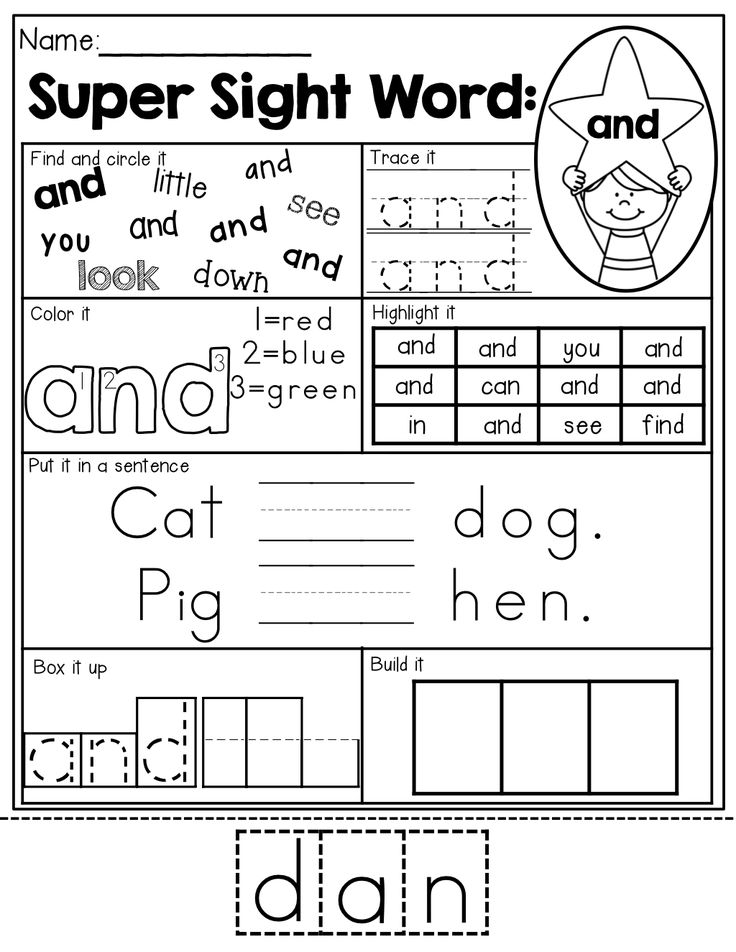 For example, "right" and "think better."
For example, "right" and "think better."
5. "I'm taking with me on a hike..."
Number of players: from 3 people
At the beginning of the game, you need to choose a leader. This person must come up with a principle by which he will take others with him on a campaign. For example, those who name objects with a specific letter, or those whose words consist of five letters. nine0003
Next, the players take turns saying the phrase "I'm taking with me on a hike ..." and naming the object. If he fits the conceived principle, then the leader answers: "Yes, and you are going on a hike with me." If the word does not fit: "No, you are not going camping with me."
The task of all players is to guess the principle by which the leader selects people. If one of the participants guesses, he should quietly express his guess in the ear of the presenter or write on the phone. The game continues until everyone has guessed the principle. nine0003
6. Alibi
Number of players: from 4 people
At the beginning of the game, you need to choose two people who will play the role of criminals.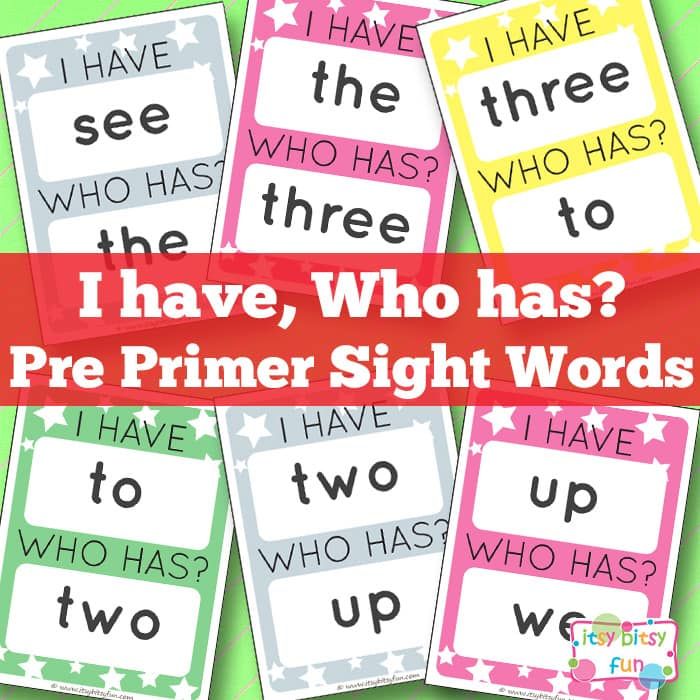 They must isolate themselves from the rest in another room and think through to the smallest detail what they did together on the day they robbed the bank: what the weather was like, what they were wearing, who they met on the street, the whole sequence of actions. The main goal of criminals is to come up with the perfect alibi.
They must isolate themselves from the rest in another room and think through to the smallest detail what they did together on the day they robbed the bank: what the weather was like, what they were wearing, who they met on the street, the whole sequence of actions. The main goal of criminals is to come up with the perfect alibi.
While they are doing this, the other players turn into detectives. They need to come up with 10-15 questions that they will ask the criminals in order to bring them to clean water and solve the crime. nine0003
When both teams are ready, the first criminal enters the room and begins to tell what he did on the day of the crime, from morning to evening. It is important that the second criminal at this moment remains in another room and does not hear the speech of the first. When the first one finishes speaking, the detectives ask him prepared questions and memorize the answers. After that, the second criminal enters the room, tells his story and also answers questions.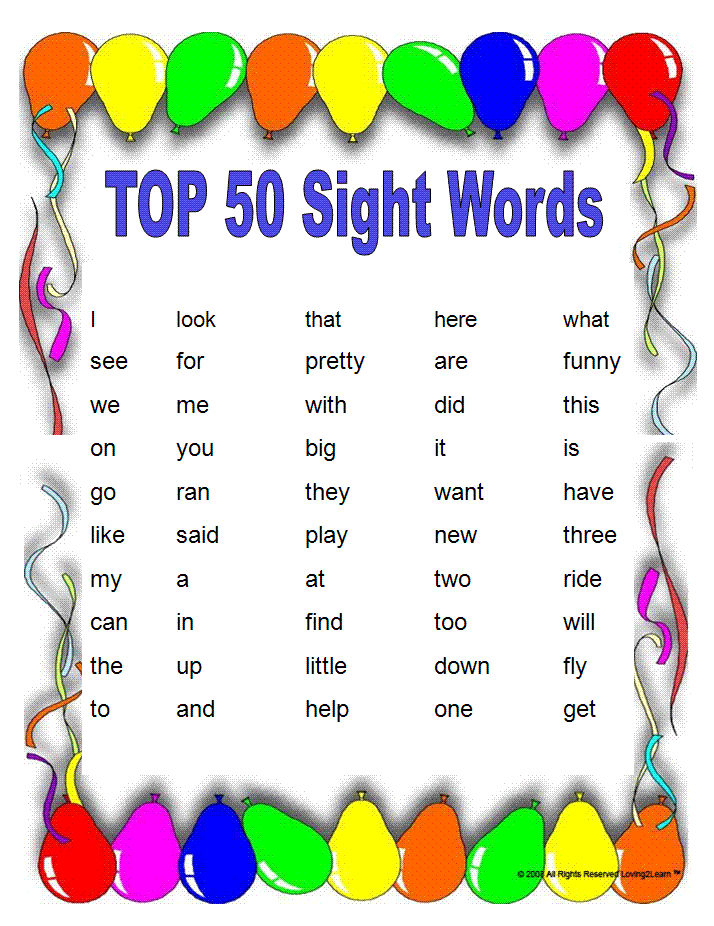
The team of detectives wins the game if they find three inconsistencies in the criminals' story. For example, one said that they were traveling in the morning by bus, and the other by car. If no disagreement is found, then the team of criminals wins. The number of questions and inconsistencies may change at the request of the participants. nine0003
7. "Contact"
Number of players: from 4 people
At the beginning of the game, a leader is chosen. He thinks of a word - a noun in the singular. And calls the other participant the first letter. For example, "a".
Next, any player from the team who has come up with a word for this letter must begin to explain it to his teammates. It is necessary that they guess, but not the host. For example, Sasha says: "This is such a sweet large red fruit that everyone eats in the summer." If one of the players guessed what it was about, he should say: "There is a contact." After that, they together count aloud from one to five. If the word matches, the leader calls the next letter. For example, in". Players must now come up with words based on the beginning with "av". If the words of the players did not match or the leader managed to name the word while two players counted to five, then the participants continue to play with one letter. nine0003
If the word matches, the leader calls the next letter. For example, in". Players must now come up with words based on the beginning with "av". If the words of the players did not match or the leader managed to name the word while two players counted to five, then the participants continue to play with one letter. nine0003
Explain with an example. The host announces that his word begins with the letter "a". Sasha comes up with any word and says: “Guys, this is such a public transport ...” Roma guesses what it is about and says: “There is a contact!” Together they count to five, and both say the word "bus" aloud. The word matched. Therefore, the leader says: "The second letter is" p "". Roma says: "A stringed musical instrument." Masha guesses about the word and shouts: "There is a contact!" They start counting up to five, but on the third second, the presenter calls the word "harp", which Roma made up. Therefore, he does not tell them the third letter. nine0003
The goal of the game is to guess the word the host has in mind.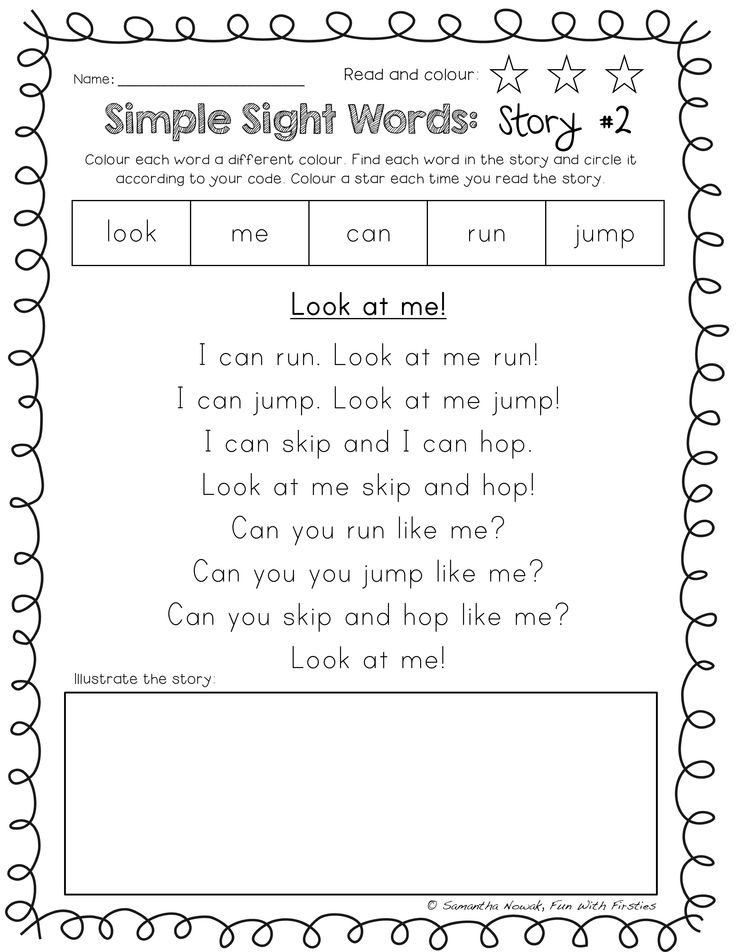 This can be done both in the process of guessing, and by naming it right away (there are such cases).
This can be done both in the process of guessing, and by naming it right away (there are such cases).
Illustration: Shutterstock (arkana.studio)
5 verbal and linguistic games in the Russian language classes
A valuable method of stimulating interest in learning is the method of using various games and game forms of organizing cognitive activity in the classroom with students and schoolchildren.
The most budgetary game form is a language game, part of which are verbal (not acting) and verbal-role-playing games.
It is also expedient to single out linguistic educational games.
What's the difference?
Word game is a word game. The game takes place exclusively through the speech interaction of the players. The word game is aimed not only at the development of language flair, but also at the development of attention and memory. nine0109 Word-role-playing games - a kind of role-playing games with a complete absence of a material component: the game takes place exclusively through the verbal interaction of the players describing the actions of their characters, and the master describing the realities of the surrounding world and the reactions of master characters.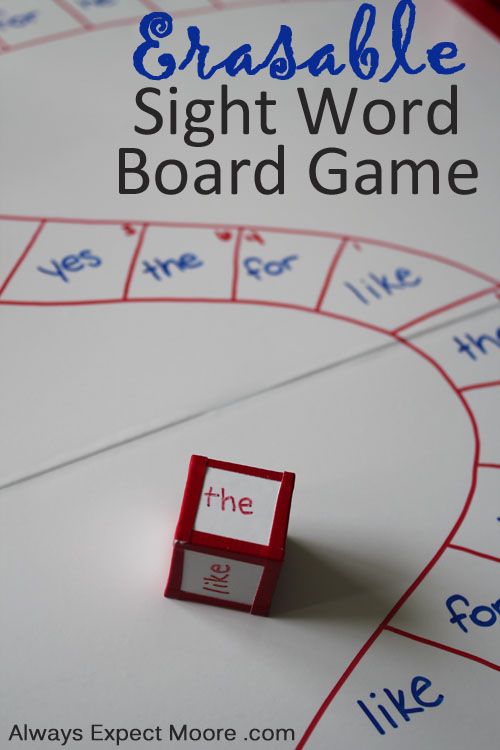
Linguistic game is a language game related to language learning and speech enrichment, with the development of logical thinking, communicative features of speech in terms of taking into account lexical, grammatical, orthoepic, syntactic features of speech. nine0003
Consequently, linguistic games are: orthoepic, lexical, grammatical, syntactic.
Linguistic game “Hidden Motives”
Surely, in the life of every person there was a situation when he committed some act and could not explain why he acted one way or another. Unraveling possible hidden motives is possible through a consistent analysis of previous events.
What we are working on: the logic of speech. nine0003
Rules: Divide the group into pairs (sometimes it's easier to unite not in pairs, but in threes). In each pair, one of the participants tells a situation that he cannot explain. The partner, through leading questions, tries to find out the facts, to connect them into syllogisms.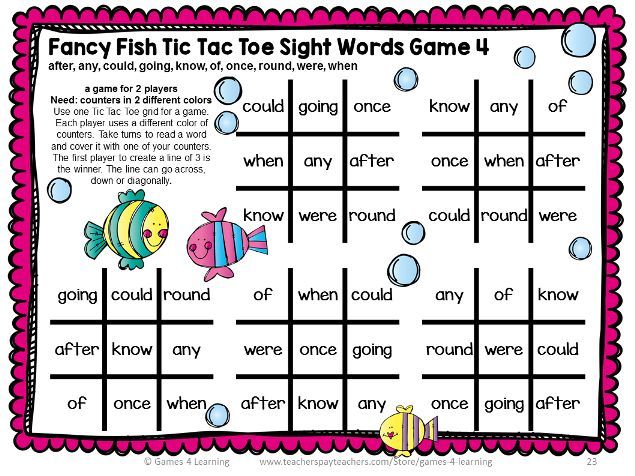
Syllogism is “a form of inference, reasoning, when a third, conclusion, is derived from two given premises or judgments.”
For example, all students take exams in the summer. I am a student, so I have exams in the summer. nine0003
In the second round, the interlocutors change places. Then comes reflection.
Word game “One day in the life”
The essence of the game: choose any profession with the students. Together you make up a story from some nouns (verbs, adjectives) about the working day of a professional.
For example, a story about a teacher's day: call-breakfast-lesson-question-answer-five-teachers-director-scandal-lesson-call-home-preparation-sleep.
Important condition: before naming a new noun, each player must repeat everything that was named before him. Then the story will be perceived as a holistic work. To better remember the named nouns, I advise you to carefully look at all the speakers, as if linking the word with a specific person.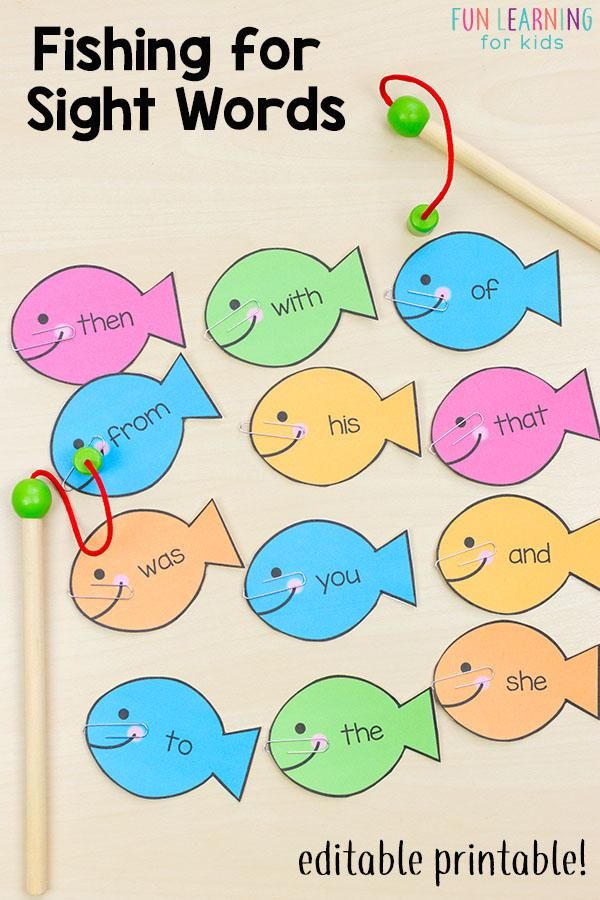
Word game “New Vocabulary”
Usually we play in a circle with students as a warm-up at any lesson.
The essence of this game is to come up with new meanings for ordinary and all familiar words.
For example: a suitor - a lover of fish soup, a monster - a volcano, a priestess - a woman who loves to eat, etc.
The one who picks up more interesting words will win. The time allotted for preparation is agreed in advance.
Taboo word game
When I need to talk to listeners/students and students, or lead them to the topic of the lesson, or review previously learned material, I use the word game “TABU”. nine0109 The rules are simple: the student gets a card with the word written on it. It needs to be explained. And under this word, or next to it, there are several more that cannot be used in the explanation.
Other students must guess this word.
It is better to prepare cards on your own - for a specific topic (for example, an essay-reasoning - for students, or general scientific terminology - students / cadets).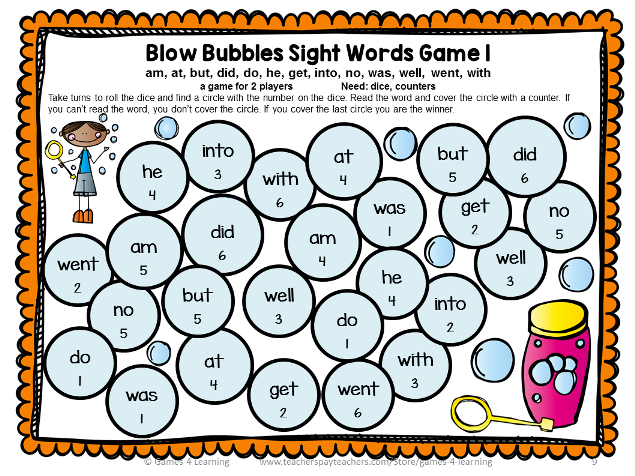
Linguistic game “Sound Images”
The teacher reads/displays the words of the writer E. Zamyatin:
“Every sound of a human voice, every letter in itself evokes certain ideas in a person, creates sound images. I am far from assigning a strictly defined semantic or color meaning to each sound, but
Sound [r] clearly tells me something loud, bright, red, hot, fast.
[l] – about something pale, blue, cold, smooth, light.
Sound [n] - about something tender, about snow, sky, night:
The sounds [d] and [t] are about something stuffy, heavy, fog, darkness, musty.
Sound [m] - about sweet, soft, about mother, about the sea.
With [a] - latitude, distance, ocean, haze, range are associated.
C [o] - high, blue, bosom:
C [and] - close, low, squeezing.
Task: come up with words starting with the letters RLNDTMAOI. Ask students and pupils to voice their sound images.
Word game “Letters-Letters”
One student guesses a word to another, which he must explain to the others, but he can only use words starting with one letter, for example, “p” (any, except for the same root) .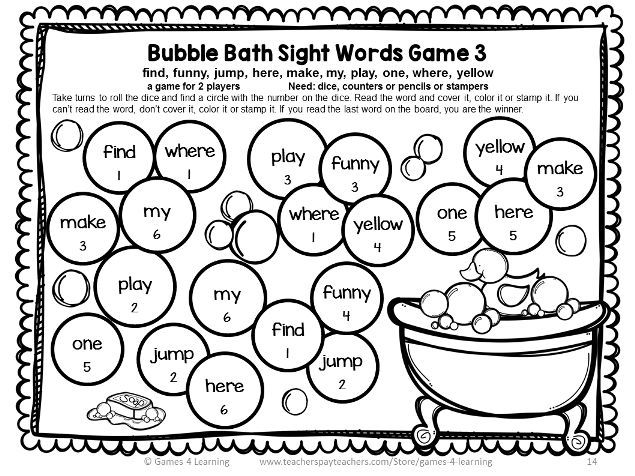 That is, the word “house” will have to be explained, for example, as follows: “built - I live”. nine0003
That is, the word “house” will have to be explained, for example, as follows: “built - I live”. nine0003
If it was not possible to guess right away, one can throw up additional associations: “building, premises, space, the simplest concept…” And at the end add, for example, “Pérignon” – by association with Dom Perignon champagne.
If the guessers are close to winning, then the teacher will need comments like “about”, “about”, “almost right” - or, in the opposite situation: “bad, wait!”. Usually, after the word is guessed, the explainer comes up with a new word and whispers it into the ear of the guesser - he becomes the next leader. nine0003
Word and language games are a great way to increase the efficiency of your classroom activities. They can be used at various stages of the lesson: at the beginning - to create a favorable atmosphere and repeat the material that will be later used in speech, in the middle or end of the lesson - to relieve fatigue, at the end of the lesson, when there are a few minutes left before the call and there is no point start some more serious exercise.